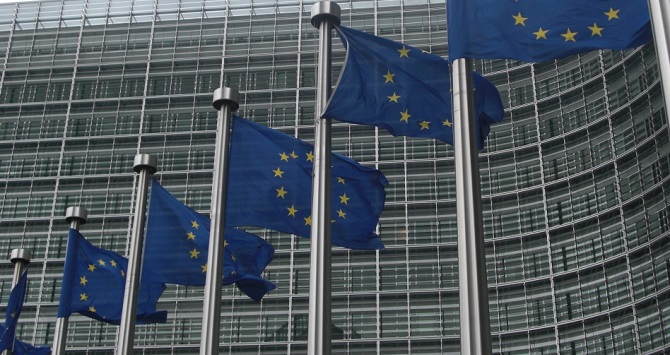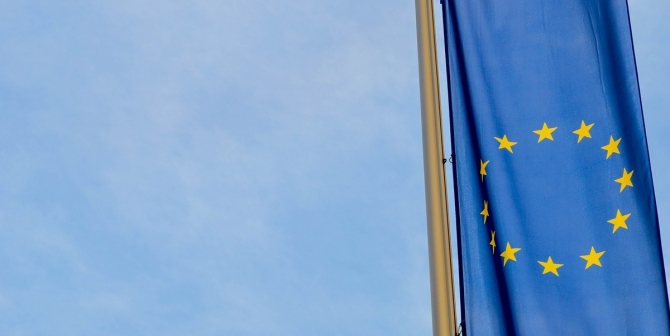 Last week, a draft of the European Commission’s Digital Single Market strategy and evidence file were leaked and obtained by Politico. Inge Graef, who researches the intersection between personal data and competition law on online media platforms at the Interdisciplinary Centre for Law and ICT at KU Leuven, looks at the implications of the leaked document for ‘over-the-top’ players.
Last week, a draft of the European Commission’s Digital Single Market strategy and evidence file were leaked and obtained by Politico. Inge Graef, who researches the intersection between personal data and competition law on online media platforms at the Interdisciplinary Centre for Law and ICT at KU Leuven, looks at the implications of the leaked document for ‘over-the-top’ players.
One of the key future actions of the European Commission, as evidenced in its recently leaked Digital Single Market strategy, concerns the creation of a level playing field in electronic communications. So-called ‘over-the-top’ (OTT) players (e.g. Skype and WhatsApp) offer internet voice and messaging services in competition with traditional telephony and SMS services provided by telecom operators. While telecom companies have to comply with the EU regulatory framework for electronic communications when offering their services to consumers, OTT players largely escape these specific regulatory obligations and are subject to more general and lighter legal regimes. The Commission seems to be planning to address this issue by proposing a reform of the current telecom framework. When devising new rules for the electronic communications sector, the Commission should not only take into account level playing field issues and consumer protection, but also ensure that potential new regulatory obligations for OTT services do not disproportionately affect the level of innovation that currently characterizes the internet.
Conveyance of signals
The applicability of many rules of the current EU regulatory framework for electronic communications depends on whether a particular service qualifies as an ‘electronic communications service’ (ECS). The key element of the definition contained in Article 2(c) of the Framework Directive is that the service must consist ‘wholly or mainly in the conveyance of signals on electronic communications networks’. Since many OTT providers deliver web-based services which do not require any conveyance of signals (at least according to the current interpretation), they fall outside the reach of many obligations of the regulatory framework. Instead, the rules to which OTT services are currently subject can be found in legal regimes that have a more general scope of application, such as the EU data and consumer protection frameworks. The obligations applicable to OTT services therefore form a more piecemeal framework combining rules from different legal fields, which do not necessarily give rise to obligations similar to the ones imposed on ECS providers under the EU regulatory framework for electronic communications.
Impact on consumers
This situation does not only give rise to level playing field issues, but may also impact consumers who do not benefit from the same legal safeguards when using OTT services. This may be problematic, considering that certain OTT services can be seen as substitutes for services provided by traditional ECS providers. Users may not be aware of the difference in applicable guarantees between telephony and SMS services on the one hand, and internet voice and messaging services like Skype and WhatsApp on the other. Due to the different scope of the obligations, users enjoy limited guarantees with respect to the use of OTT services. While OTT and ECS providers thus seem to stand in direct competition on the market, the rights and protection to which users are entitled may differ depending on whether the service they choose to use qualifies as an ECS or not.
Portability and interoperability
Two critical obligations that are currently not applicable to OTT providers concern portability and interoperability. Under Article 30 of the Universal Service Directive, ECS providers are obliged to facilitate the porting of telephone numbers on the request of a subscriber who is switching to a new operator. No equivalent portability duty for OTT providers can be found in existing EU legislation. Instead of the telephone number which is central to electronic communications services, the data that users have supplied to certain OTT providers, such as VoIP providers like Skype and messaging service providers like WhatsApp, may be the limitation to switching services: users can become locked-in to a given provider if they find it too cumbersome to transfer their data to a new service, and for that reason decide to stay with their current provider. The ‘right to data portability’ that the European Commission introduced in Article 18 of the proposal for a General Data Protection Regulation may remedy this potential type of user lock-in. Although its objective rather lies in giving users more control over their personal data and building trust in the online environment, the effects of the right to data portability would likely also include a reduction of switching costs. When adopted, the new right would enable users to transfer their data from one electronic processing system to another. However, it remains to be seen if and in which form the right to data portability will be included in the final version of the General Data Protection Regulation.
With regard to interoperability, operators of public communications networks have a right, and when requested by other undertakings, an obligation to negotiate interconnection with each other on the basis of Article 4(1) of the Access Directive in order to ensure provision and interoperability of services in the European Union. A similar requirement does not exist for OTT providers which are, as a result, still legally entitled to exclude competitors from interconnecting with their system, as long as a lack of interoperability does not qualify as abuse of dominance under EU competition law (Article 102 of the Treaty on the Functioning of the European Union). Due to this regulatory asymmetry, users can make traditional phone calls to any other user regardless of his or her ECS provider, while interaction on, for example, internet voice and messaging services is limited to those users who joined the same OTT service.
Outlook for the future
For now, it remains unclear how the European Commission will address these issues. One can conclude from the leaked Digital Single Market strategy that the Commission is planning to subject ECS and OTT providers to the same regulatory regime. The leaked document states: ‘It is necessary to design a fair and future-proof regulatory environment for all services and to decide what level of regulation is needed’. The question is therefore whether the Commission will extend the scope of application of the obligations in the current regulatory framework to OTT providers, or whether it will propose a lighter regulatory regime for ECS providers. In determining its future policy direction, the Commission should not only consider the protection of the consumer but also the impact that strict regulatory obligations may have on the incentives of OTT players to innovate and develop new services and business models. The new regulatory framework should not place a disproportionate burden on internet startups that currently enter the market on a continuous basis and keep incumbents under constant competitive pressure. The key challenge for the Commission will therefore lie in finding a balance between, on the one hand, the creation of a level playing field and adequate legal safeguards for consumers, and, on the other hand, leaving sufficient room for market players to innovate and let the market evolve.
This post gives the views of the author and does not represent the position of the LSE Media Policy Project blog, nor of the London School of Economics and Political Science.




